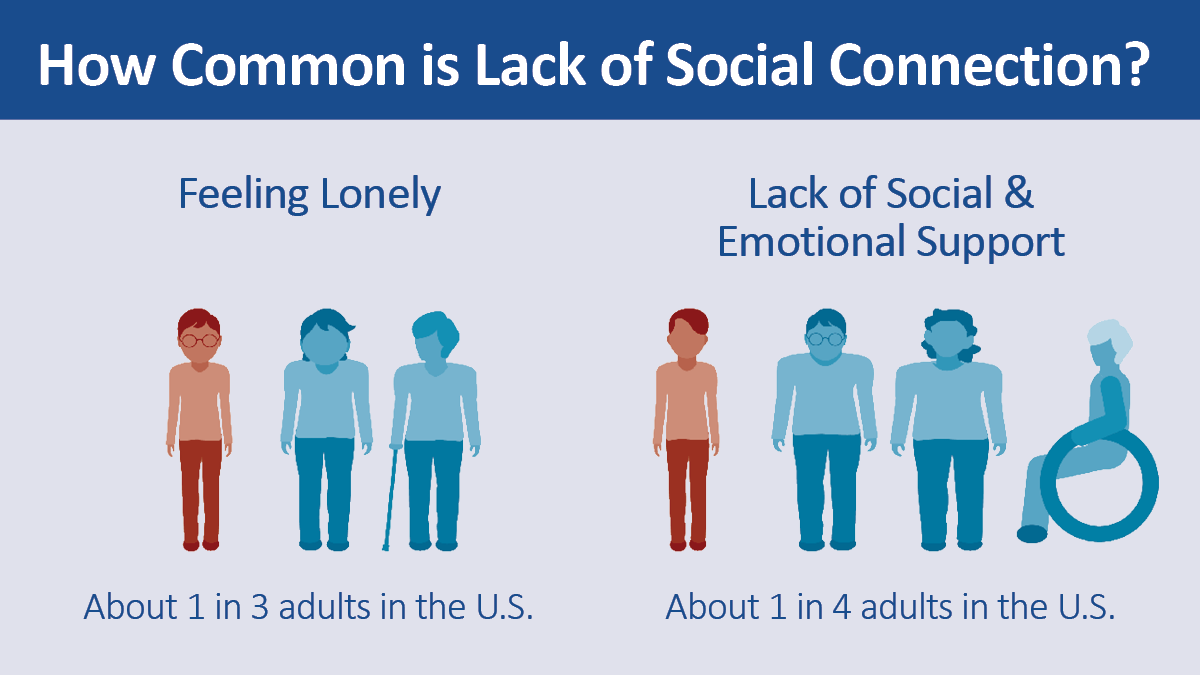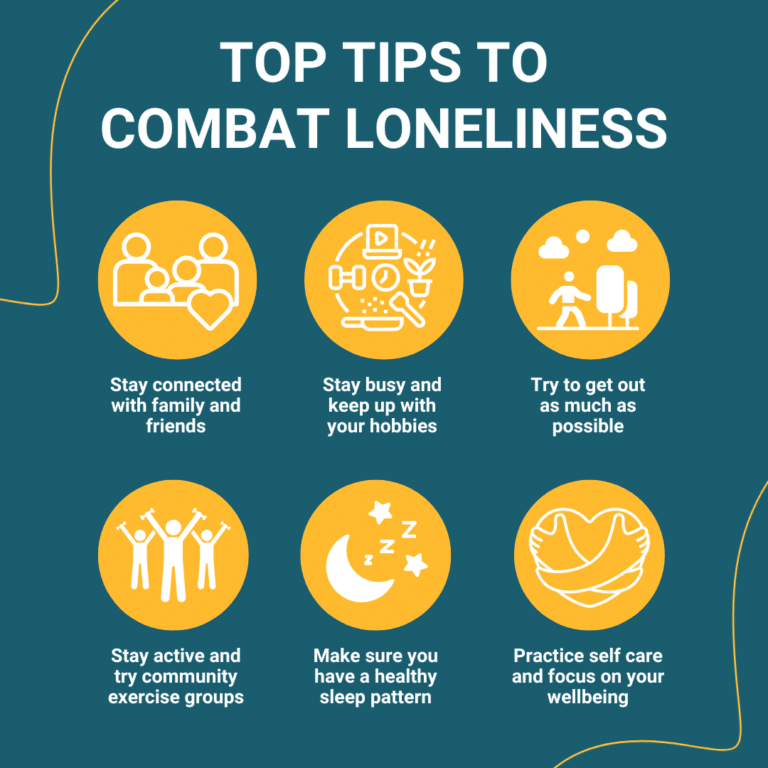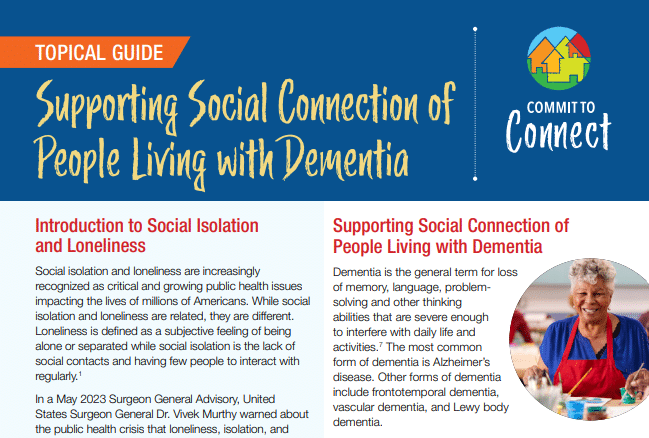Dementia And Social Isolation: How To Stay Connected
Dementia is a word that can evoke a plethora of emotions. For many, it conjures a sense of fear and uncertainty about a future that may involve cognitive decline. It is a term that can make us think about our loved ones, our parents, grandparents, and how we want to connect with them during the challenging journey they may face. As you navigate through this sensitive topic, it’s important to remember that amidst the struggles of dementia, the warmth and healing power of social connections can create a supportive framework. This article aims to guide you through understanding dementia and social isolation, and how you can stay connected — not just for the sake of your loved ones but for yourself as well.

Understanding Dementia
When we talk about dementia, we’re discussing a range of symptoms that affect memory, thinking, and social abilities. It’s not a single disease but rather an umbrella term for various conditions, including Alzheimer’s disease. Dementia can manifest in a variety of ways, impacting cognition to the extent that daily living becomes challenging. As you may know, it affects not only the individual but also their friends and family, who often experience a shift in roles and relationships. Staying informed about the nature of dementia is the first step towards fostering understanding and compassion.
The Link Between Dementia and Social Isolation
One of the significant issues that arise with dementia is social isolation. Your loved one may withdraw from social situations because they feel embarrassed or confused. They might struggle to initiate conversations or follow discussions, leading them to feel misunderstood and disconnected. As a caregiver or family member, you might wonder how you can ease their burden and foster a sense of belonging. This isolation often aggravates feelings of depression and anxiety, which further hampers their ability to engage socially. Recognizing this connection is vital in finding ways to bridge that gap.
The Emotional Toll of Social Isolation
Think for a moment about the emotions tied to isolation — the longing for companionship, the desire to share a smile, a laugh, or even a quiet moment with someone who understands you. For those living with dementia, the emotional toll of isolation can be heavy. It can lead to feelings of loneliness, hopelessness, and even exacerbate cognitive decline. You may have seen this dynamic play out firsthand in your family, where the vibrant personality of your loved one dims because of isolation. Addressing these emotions should be a central focus in offering support.
Understanding the Importance of Connection
Staying connected with family, friends, and community can help your loved ones maintain a sense of identity and purpose. These connections provide emotional nourishment and validation, reinforced by shared experiences. Whether they are engaging in conversations, participating in activities, or simply sharing a meal, these interactions can significantly enhance their quality of life. As you make efforts to connect, remember that even the simplest of interactions can have profound effects. You hold the key to creating moments of joy and reminder that your loved one is seen and valued.

Practical Steps to Stay Connected
Regular Check-Ins
One of the simplest yet most impactful ways to remain connected is through regular check-ins. You might consider scheduling weekly visits or phone calls, depending on the preferences of your loved one. The frequency can be tailored to your loved one’s comfort and energy levels. When you reach out, take a moment to ask open-ended questions, share stories, and most importantly, listen. Active listening communicates to them that their thoughts and feelings are important, reinforcing their self-worth.
Create Routine Gatherings
Establishing routine family gatherings or social events provides opportunities for interaction in a familiar environment. These routines can help your loved one feel a part of something bigger than themselves. You could initiate a monthly family dinner, hold a game night, or simply engage in shared hobbies. Routines offer comfort and predictability, which can ease anxiety for those experiencing cognitive challenges. In the company of loved ones, your urgent need to connect will likely be met with warmth.
Incorporate Technology
In an increasingly digital world, technology serves as a bridge to maintain connections. Utilizing platforms such as video calls, messaging apps, or social media can help you engage with your loved one, especially if distance is a factor. Take the time to teach them how to use these technologies or assist them in navigating it. It might take patience, but every attempt fosters interactivity and connection. The joy in the laughter shared during a video call is timeless and can be cherished forever.
Engage in Shared Activities
Spending quality time through shared activities reinforces bonds and creates meaningful memories. Think of activities that resonate with both you and your loved one. Whether it’s cooking a favorite family recipe, tending a garden, or working on a puzzle, engaging in these experiences allows for gentle conversation and creates a sense of accomplishment. These moments can help reinforce their identity and provide a reassuring presence in an often-confusing world.
The Role of Community
Local Support Groups
Many communities have local support groups for caregivers and individuals with dementia. These groups foster understanding, empathy, and shared experiences. Encouraging your loved one to attend these sessions offers them a chance to connect with others in a similar situation. You may also find encouragement and practical strategies for managing challenges. Connecting with others provides validation and alleviates the weight of isolation. You don’t have to navigate this journey alone.
Volunteer Opportunities
Finding volunteer opportunities for your loved one can provide a purpose while allowing them to engage with the community. Whether it’s participating in local charity work or even crafting for a cause, these activities offer an avenue to cultivate relationships outside of family. Volunteering can provide a renewed sense of identity and fulfillment. As they contribute to something larger, you may just witness their spirit flourish.
Community Events
Local libraries, community centers, and hospitals often host events and programs designed for individuals with cognitive issues and their families. Encourage your loved one to participate in these programs, providing a safe space for socialization and engagement. Attend these events alongside them to foster comfort, and encourage new relationships. Each gathering holds the potential for connection, distraction, and joy amidst challenging circumstances.

Fostering Memories and Conversations
Reminiscence Therapy
Reminiscence therapy is a creative approach to engaging with individuals with dementia. It involves using photographs, music, and personal artifacts from the past to evoke cherished memories. You can curate a memory box filled with images and objects from their life, prompting discussions and delightful stories. This method not only stimulates cognitive functions but also helps your loved one feel valued and connected to their own narrative.
Storytelling
Encouraging storytelling can be a therapeutic way to foster communication. Create opportunities for your loved one to share their life stories, experiences, and perspectives. These moments help them maintain their sense of identity and foster a profound connection. You may find that through storytelling, your loved one reveals memories that had long been buried, adding depth to your relationship and allowing you to see a different side of them.
Utilize Memory Books
Consider creating a memory book that highlights significant events in your loved one’s life. This book can feature photographs, favorite quotes, and personal anecdotes, creating a visual timeline of their experiences. You can look through it together, prompting conversations and offering reassurance. Memory books are not just photographs but gateways to deep conversations and healing.
Cultivating Empathy and Understanding
Active Listening
Listening is a powerful act of empathy. Practicing active listening can change the dynamics of your interactions. When your loved one speaks, focus your attention solely on them. Acknowledge their sentiments with nods and affirmations. This showcases your presence, reinforcing their sense of worth and importance. Creating this safe space will not only help them express themselves but may also alleviate feelings of frustration.

Persistence and Patience
Navigating relationships with loved ones experiencing dementia requires persistence and patience. You may face changes in their moods, shifts in their cognitive responses, and even resistance to engaging. Understand that this is part of the journey. It takes time for both of you to adapt. Celebrate small victories and remain optimistic in your efforts. Your love and persistence will shine through, unraveling the barriers of isolation.
Conclusion
Staying connected with a loved one experiencing dementia isn’t always a straightforward journey. But with dedication, creativity, and empathy, those connections can be nurtured and transformed. The simple act of reaching out can illuminate a path through the fog of isolation. Remember that you don’t have to walk this path alone; surrounding yourself with supportive networks, fellow caregivers, and your community can make all the difference. You are not just preserving the relationship; you are enriching lives and providing solace during a time of need.
If you found this article useful, I encourage you to clap and leave a comment below with your thoughts or experiences. Don’t forget to subscribe to my Medium newsletter for updates on related topics so that we can continue to grow and learn together. Remember, staying connected is not just a gift to others, but a way to enrich your own life as well.
